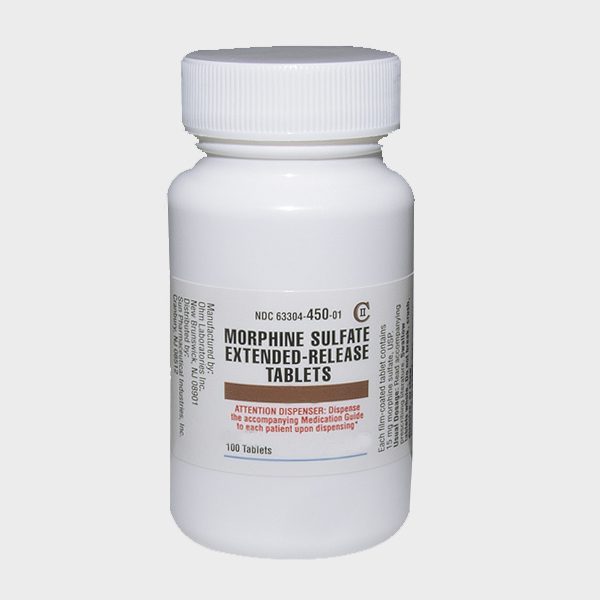Description
Morphine Sulphate 100mg
Introduction
Morphine sulphate 100mg is a medication commonly used to manage moderate to severe pain. It belongs to a class of drugs known as opiates, which work in the brain and spinal cord to relieve pain. This medication is available in oral and injectable forms. This document aims to provide a brief overview of morphine sulphate and its usage.
Mechanism of Action
Morphine sulphate works by binding to opioid receptors in the brain and spinal cord. This binding reduces the transmission of pain signals and enhances the perception of pain relief. The medication also affects mood, breathing, and heart rate, which contribute to the overall analgesic effect.
Common Uses
Morphine sulphate is primarily used to treat pain associated with various conditions, including:
– Cancer Pain: Morphine sulphate is commonly used in palliative care to manage cancer-related pain.
– End-stage Renal Disease: It is also prescribed to manage pain in patients with end-stage renal disease.
– Postoperative Pain: Morphine sulphate is often prescribed to relieve pain following surgery.
– Trauma Pain: It is commonly used in trauma settings to manage severe pain that cannot be adequately controlled with other medications.
Side Effects
While morphine sulphate is generally considered effective in managing pain, it may also cause some side effects. Common side effects include:
– Nausea and Vomiting: Taking this medication with food can help reduce nausea.
– Drowsiness: Morphine sulphate can cause drowsiness, so patients are advised to avoid driving or engaging in activities that require alertness.
– Constipation: Drinking plenty of water and engaging in regular physical activity can help manage constipation.
– Stomach Pain: Taking this medication with food can help reduce stomach discomfort.
– Respiratory Depression: Using morphine sulphate with other respiratory depressants can increase the risk of respiratory depression.
Dosage and Administration
The dosage of morphine sulphate depends on the individual’s condition, age, and response to treatment. It is usually prescribed in oral or injectable form. The physician will determine the dosage and frequency of administration based on the specific needs and tolerance of the patient.
Precautions and Warnings
Before taking morphine sulphate, it is important to inform your healthcare provider about any other medications you are taking, including over-the-counter medications, vitamins, and herbal supplements. This medication can interact with certain medications and increase the risk of side effects.
If you are pregnant or breastfeeding, it is not recommended to take morphine sulphate unless medically necessary. Discuss the risks and benefits with your healthcare provider.
Conclusion
Morphine sulphate is a medication commonly used to manage moderate to severe pain. It binds to opioid receptors in the brain and spinal cord to provide pain relief. This medication is commonly used in various conditions, including cancer pain, post-operative pain, and trauma pain. While morphine sulphate can be effective in managing pain, it may also cause some side effects. It is important to consult with a healthcare professional before using this medication and to adhere to the prescribed dosage and administration guidelines.






Reviews
There are no reviews yet.